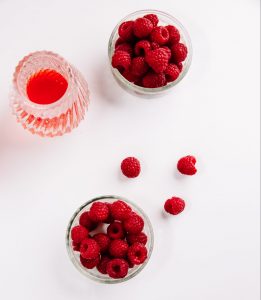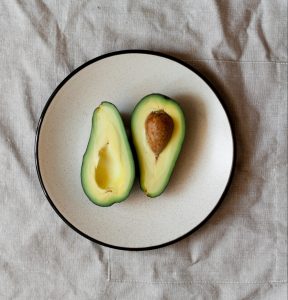Healthy Skin
Foods to help your body produce collagen
Want to know how to help source collagen through your diet? The most abundant protein found naturally in the body, collagen is responsible for keeping our skin healthy, youthful and plump. Collagen is often described as the ‘scaffolding’ that holds our tissues together. It’s essential for healthy hair and nails, and even our digestion.
As we grow older, collagen levels decline in the body. We become less efficient at making collagen from amino acids. In fact, from the age of 25 onwards, we start to lose collagen production at a rate of about 1.5%, which explains why our skin loses elasticity and tone as we age.
Aside from good supplementation (see below for the only kind Liz recommends!) we can help to support collagen levels and aid production with certain foods. Many supplements on the market aren’t suitable if you follow a plant-based diet. This is because most contain ingredients derived from animals – usually from beef and fish. The good news is that we can help support our own collagen production through nutrition, whatever your diet – although ultimately, once past the age of 35, supplementation is the surest way to ensure good supplies.
Here, we share foods that are helpful for collagen production, either by providing the amino acids needed to create it or help with production or maintenance.
Sourcing collagen from your diet
Protein
Our body naturally produces collagen from amino acids, and we can support collagen production by eating plenty of high qualityprotein. Lysine, glycine and proline are the three amino acids required for collagen production.
Meat and fish all contain high levels of protein, as do eggs, tofu, beans, yoghurt, cheese and real cow’s milk.
Vitamin C
Studies show that vitamin C can help to stimulate the production of collagen in our body. 
Therefore, loading up our plates with foods that are rich in vitamin C, such as citrus fruits like lemons, oranges and limes, peppers, and veggies like kale and broccoli, is a great way to boost vitamin C levels.
Berries, such as strawberries, raspberries and blueberries also contain high levels of vitamin C, as well as other antioxidants that help to fight cell damaging free radicals, which would otherwise contribute to skin ageing.
When it comes to collagen supplements, you’ll notice that many also contain vitamin C because of the benefits it can have for our skin.
Bone broth
A wholesome, warming bone broth is rich in amino acids, which our bodies can then use to produce collagen. Our collagen-boosting bone broth recipe is just the ticket and is as tasty as it is beneficial.
It uses up bones from grass-fed cows, although you can use any large bones. It also helps to avoid food waste if you are a meat eater, all while helping to improve the health of your skin. During the summer months, you can also add bone broth to shakes, smoothies and chilled soups.
Zinc
Zinc is another key nutrient that is essential to the production of collagen within the body. It helps to maintain and repair collagen stores as it’s needed to make the enzymes that bond protein levels together.
Foods that are high in zinc include red meat such as beef, shellfish such as oysters, legumes such as chickpeas and kidney beans, eggs and dark chocolate.
Zinc has other skin benefits too, such as helping to prevent acne.
Copper

Just like zinc and vitamin C, eating a diet rich in copper can help with collagen synthesis in the body. Copper activates the enzyme lysyl oxidase in the body, which is required for collagen maturation.
Foods that contain high levels of copper include organ meats like liver and kidneys, shellfish like lobsters and oysters, nuts like cashews, and avocados.
When it comes to your beauty routine, applying copper peptides topically to your skin can help to encourage collagen production, according to experts.
Manganese
A trace mineral, manganese may also help with collagen production. It’s needed to produce the amino acid proline, which is essential for collagen formation as well as wound healing in our skin cells.
Black tea has a high concentration of manganese and is also rich in other foods such as hazelnuts, as well as mussels, tofu and pineapple.
Chicken skin
Are you a fan of chicken skin? You may be pleased to learn that it contains high levels of glycine, one of the amino acids that are key to collagen production. Fish skin is also a good source (try crisping up salmon skin for a healthy snack!).
Chicken – with or without the skin – is still high in protein and contains lots of amino acids needed for collagen production. We would always advocate buying organic or high-welfare chicken reared without the routine use of antibiotics in chicken feed.
Supplementation
If you’’re looking for a supplement, Liz is a fan of Ingenious Beauty Collagen. You can use the LIZLOVES affiliate code to save yourself 15% off at checkout. These capsules have been clinically and independently tested to prove they survive the breakdown of stomach acids to reach the small intestine intact.
Ingenious also has a plant-based alternative to collagen, which can aid production in the body. These are a good option for any on a nutritionally restricted diet, such as vegans.
Our recipe for collagen fruit gummies is another fun way to give your body a little leg up with collagen production.





